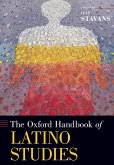What if the American experiment is twofold, encompassing both democracy and tyranny? That is the question at the core of this book, which traces some of ways that Americans across the nineteenth century understood the perversions tyranny introduced into both their polity and society. While some informed their thinking with reference to classical texts, which comprehensively consider tyranny's dangers, most drew on a more contemporary source--Napoleon Bonaparte, the century's most famous man and its most notorious tyrant. Because Napoleon defined tyranny around the nineteenth-century Atlantic world--its features and emergence, its relationship to democratic institutions, its effects on persons and peoples--he provides a way for nineteenth-century Americans to explore the parameters of tyranny and their complicity in its cruelties. Napoleon helps us see the decidedly plural forms of tyranny in the US, bringing their fictions into focus. At the same time, however, there are distinctly American modes of tyranny. From the tyrannical style of the American imagination to the usurping potential of American individualism, Elizabeth Duquette shows that tyranny is as American as democracy.
Dieser Download kann aus rechtlichen Gründen nur mit Rechnungsadresse in A, B, BG, CY, CZ, D, DK, EW, E, FIN, F, GR, HR, H, IRL, I, LT, L, LR, M, NL, PL, P, R, S, SLO, SK ausgeliefert werden.









